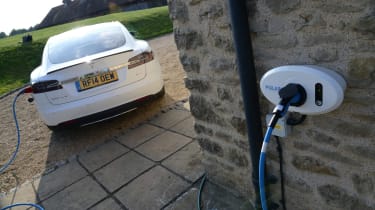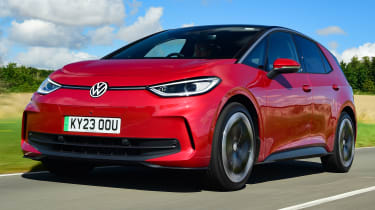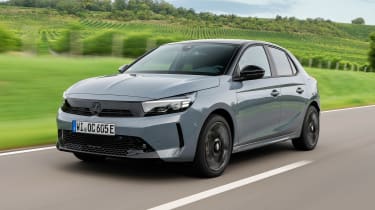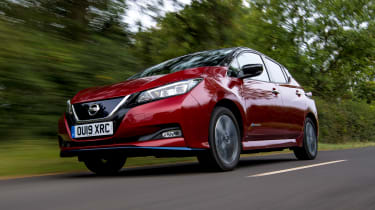Are EVs cheaper to run than petrol or diesel cars right now? We have the answers!
We explore the Total Cost of Ownership for a range of comparable electric and petrol cars with telling results
It’s no secret that despite the best efforts of car makers to promote them, electric cars are proving quite a hard sell to private buyers.
While business and fleet sales are strong, thanks to big company-car tax benefits for drivers making the transition to electric vehicles, plus the desire to project a ‘green’ image, the latest figures from the Society of Motor Manufacturers and Traders (SMMT) point to a declining level of interest among buyers who have to pay for their own new cars.
The SMMT’s chief executive Mike Hawes told the recent Electrified conference in central London that whereas private buyers used to make up a third of the EV market, “it’s down to about a quarter now”. That was reflected in the SMMT’s September 2023 sales figures, which revealed that new registrations of battery-electric vehicles to private buyers had fallen 14 per cent compared with September 2022.
-
The cheapest electric cars on sale 2023
It’s a worrying trend for car makers committed to the EV transition, especially because the government confirmed recently they’d have Zero Emissions Vehicle (ZEV) Mandate sales targets to meet from January next year. Across the industry there have been calls for a new package of taxpayer-funded incentives to help encourage private buyers to make the transition, too.
Not everyone agrees that state hand-outs are the answer, though, and we’ll most likely have to wait until the Chancellor’s Autumn budget statement in November to learn whether the Government intends to reverse an earlier decision to discontinue incentives for private buyers of EVs – the UK’s plug-in car grants were axed in 2022.
Speakers at the SMMT Electrified conference acknowledged other barriers to consumer take-up of EVs, including high levels of chargepoint anxiety caused by the patchy national roll-out of installations, and public perceptions, including one that electric cars are still prohibitively expensive.
They called for government action to address the former, but comments from Volkswagen Group UK’s managing director Alex Smith caught our attention on the latter point. He boldly claimed that when you look at the total cost of ownership, and not simply the sticker price, the EV-versus-ICE playing field has started to level out.
“At the moment, electric vehicles are regarded by the private consumer as relatively expensive, and it’s true to say that in the retail price of an electric car versus an equivalent petrol or diesel car you will find a premium,” Smith said. “The technology is new and the volumes and economies of scale are not fully realised. But when you look at the operating costs, when you look at the fuelling cost of petrol usage versus electricity use, especially if the majority of charging is done at home, then the argument becomes far more compelling.
“So I think incentivisation in the private market still has a role to play, and we also need to continue to make sure that our explanations to consumers are crystal clear in terms of the affordability over the whole ownership cycle, rather than just at the point of initial purchase.”
Volkswagen ID.3 vs Volkswagen Golf
These family hatchbacks from the VW brand run each other close. These figures include a £3,000 VW deposit contribution on ID.3, £2,000 on Golf.
Make/model |
ID.3 Pro 204PS |
Golf 2.0 TDI R-Line DSG |
RRP (On the road) |
£37,255.00 |
£33,670.00 |
PCP total cost (3yr) |
£21,618.35 |
£20,890.70 |
(Finance deposit) |
(£5,000 customer) |
(£5,000 customer) |
(Monthly finance payment) |
(£474.81 x35) |
(£454.02 x35) |
Insurance cost (3yr) |
£799.57 |
£679.78 |
Road tax (Yrs 2-3) |
£180.00 |
£360.00 |
Fuel/electricity cost – 30k miles |
£2,813.03 |
£3,560.60 |
Service cost (3yr) |
£181.00 |
£222.00 |
Tyres (3yr) |
£808.00 |
£239.00 |
Brakes (3yr) |
£0.00 |
£29.00 |
Other maintenance (3yr) |
£61.00 |
£125.00 |
Total cost of ownership |
£26,460.95 |
£26,106.00 |
Vauxhall Corsa Electric vs Corsa 1.2 Turbo
Vauxhall’s electric supermini can’t get close to its petrol sibling, despite deposit contributions of £4,400 for the EV and £2,750 for the 1.2 Turbo.
Make/model |
Corsa Electric GS 136PS |
Corsa GS 1.2T 130PS auto |
RRP (On the road) |
£33,730.00 |
£25,255.00 |
PCP cost (3yr) |
£22,734.10 |
£14,270.75 |
(Finance deposit) |
(£4,000.00 customer) |
(£4,000.00 customer) |
(Monthly finance payment) |
(£535.26) |
(£293.45) |
Insurance cost (3yr) |
£691.52 |
£678.02 |
Road tax (Yrs 2-3) |
£180.00 |
£360.00 |
Fuel/electricity cost – 30k miles |
£2,753.73 |
£4,1575.51 |
Service cost (3yr) |
£249.00 |
£696.00 |
Tyres (3yr) |
£342.00 |
£335.00 |
Brakes (3yr) |
£0.00 |
£68.00 |
Other maintenance (3yr) |
£77.00 |
£91.00 |
Total cost of ownership |
£27,027.35 |
£20,656.28 |
Nissan Leaf versus Nissan Juke
Nissan’s Leaf EV takes on its petrol-powered Juke stablemate, in 2wd auto guise for fairness. Nissan’s deposit contribution is £1,250 for both cars.
Make/model |
Nissan Leaf Acenta |
Juke Acenta DIG-T 114 2wd auto |
RRP (On the road) |
£28,995.00 |
£24,085.00 |
*PCP cost (3yr) |
£19,436.00 |
£13,856.00 |
(Finance deposit) |
(£5,000 customer) |
(£5,000 customer) |
(Monthly finance payment) |
(£401.00) |
(£246.00) |
Insurance cost (3yr) |
£800.69 |
£666.89 |
Road tax (Yrs 2-3) |
£180.00 |
£360.00 |
Fuel/electricity cost – 30k miles |
£3,251.04 |
£4,537.04 |
Service cost (3yr) |
£318.00 |
£614.00 |
Tyres (3yr) |
£366.00 |
£447.00 |
Brakes (3yr) |
£0.00 |
£62.00 |
Other maintenance (3yr) |
£78.00 |
£85.00 |
Total cost of ownership |
£24,429.73 |
£20,627.93 |
Verdict
If ever ‘doing the maths’ was appropriate advice, it’s when looking at the cost of buying an EV, because it seems there’s no hard-and-fast rule. The three-year costs of VW’s EV and ICE options here are close enough that the difference is negligible, but you’d have to be very invested in a Corsa Electric to overlook an extra cost of £6,000 over the same period. Nissan’s ICE and EV contenders get closer to cost parity, but the difference is still close to £4,000 in favour of the petrol variant.
In short, while we can’t fault Alex Smith’s sums, make sure you do your own!
Subscribe to the UK's favourite car magazine: get Auto Express delivered every week…
Source: Read Full Article
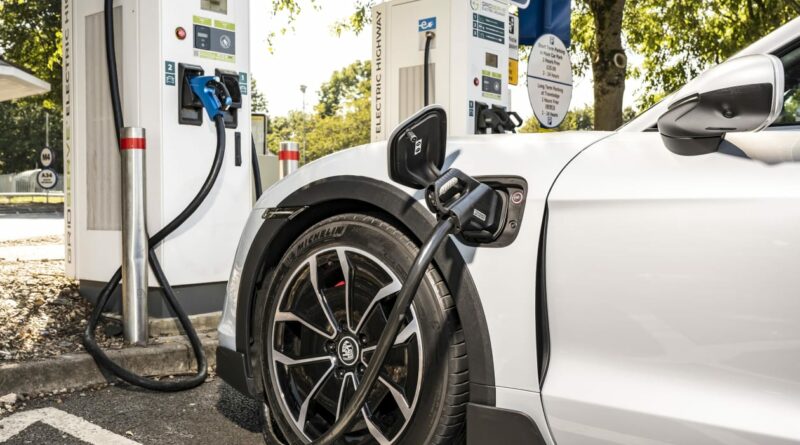

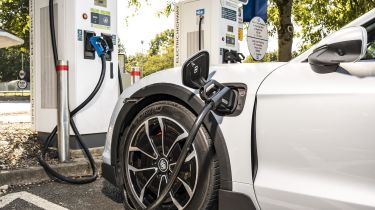
 The cheapest electric cars on sale 2023
The cheapest electric cars on sale 2023